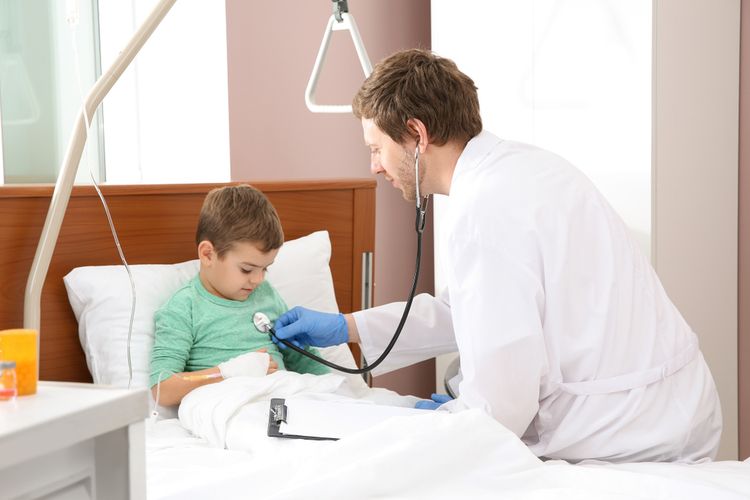The difference in age requires different approaches to handling health issues by a doctor. For example, children's health problems, ranging from newborns, and children, to adolescents around 18 years old, should ideally be handled by a pediatric specialist.
Not all illnesses experienced by a person can be treated by a general practitioner. In certain situations and conditions, due to limited facilities and competencies, some diseases can only be handled by a specialist doctor.
A pediatrician, or pediatric specialist, is a doctor who focuses on the physical, mental, emotional, developmental, and social health of children. Additionally, a pediatrician is responsible for preventive measures in healthy children, such as vaccinations, and providing treatment for both acute and chronic illnesses in children.
The main difference that can be immediately recognized is the difference in body size followed by maturation changes. The smaller body size of infants or neonates affects the physiological differences between children and adults. Hereditary diseases, genetic variations, and growth issues are common problems faced by pediatricians. The common saying is that children are not "small adults," so healthcare providers must understand the immature physiology of infants or children when considering symptoms, prescribing medications, and diagnosing illnesses.
A child's physiology directly influences the pharmacokinetic properties of drugs entering the body. The absorption, distribution, metabolism, and elimination of drugs differ between children and adults. However, there is still no comprehensive research to differentiate these two age groups, thus further studies are needed to better understand how these factors may influence the decisions healthcare providers make when prescribing and administering drugs to the pediatric population.
Services provided by a pediatrician include:
- Consultation and Examination: Before a comprehensive health examination is conducted, parents usually consult with the doctor regarding complaints or health issues their child is experiencing. The doctor will gather more in-depth information from the parents to establish a diagnosis and provide recommendations for further care or medical actions.
- Lactation Consultation (Breastfeeding Mothers): A lactation consultant helps breastfeeding mothers who are having difficulties. With proper support and information from a lactation consultant, the breastfeeding process can become easier.
- Injections/Vaccinations: Vaccination is an active immunization through the administration of vaccines that can stimulate the immune system to form immunity against specific diseases.
- Nebulization: Nebulization is a treatment using a nebulizer device, usually given to patients with respiratory disorders by inhaling the medication, making it easier for the drug to enter the lungs.
Take your child to a pediatrician immediately if they experience any of the following conditions:
- Fever
- Severe vomiting or diarrhea
- Dehydration
- Seizures
- Respiratory issues such as a persistent cough and cold, or severe symptoms like shortness of breath
- Painful urination
- Rash
- Growth and development issues
- Premature birth

Post a Comment for "children's health services"